Summary | Excerpt | Reading Guide | Discuss | Reviews | Beyond the book | Read-Alikes | Genres & Themes | Author Bio
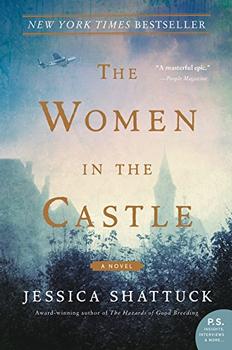
Three women, haunted by the past and the secrets they hold.
Set at the end of World War II, in a crumbling Bavarian castle that once played host to all of German high society, a powerful and propulsive story of three widows whose lives and fates become intertwined - an affecting, shocking, and ultimately redemptive novel from the author of the New York Times Notable Book The Hazards of Good Breeding.
Amid the ashes of Nazi Germany's defeat, Marianne von Lingenfels returns to the once-grand castle of her husband's ancestors, an imposing stone fortress now fallen into ruin following years of war. The widow of a resister murdered in the failed July 20, 1944, plot to assassinate Adolf Hitler, Marianne plans to uphold the promise she made to her husband's brave conspirators: to find and protect their wives, her fellow resistance widows.
First Marianne rescues six-year-old Martin, the son of her dearest childhood friend, from a Nazi reeducation home. Together, they make their way across the smoldering wreckage of their homeland to Berlin, where Martin's mother, the beautiful and naive Benita, has fallen into the hands of occupying Red Army soldiers. Then she locates Ania, another resister's wife, and her two boys, now refugees languishing in one of the many camps that house the millions displaced by the war.
As Marianne assembles this makeshift family from the ruins of her husband's resistance movement, she is certain their shared pain and circumstances will hold them together. But she quickly discovers that the black-and-white, highly principled world of her privileged past has become infinitely more complicated, filled with secrets and dark passions that threaten to tear them apart. Eventually, all three women must come to terms with the choices that have defined their lives before, during, and after the war—each with their own unique share of challenges.
Written with the devastating emotional power of The Nightingale, Sarah's Key, and The Light Between Oceans, Jessica Shattuck's evocative and utterly enthralling novel offers a fresh perspective on one of the most tumultuous periods in history. Combining piercing social insight and vivid historical atmosphere, The Women in the Castle is a dramatic yet nuanced portrait of war and its repercussions that explores what it means to survive, love, and, ultimately, to forgive in the wake of unimaginable hardship.
PROLOGUE
BURG LINGENFELS, NOVEMBER 9, 1938
The day of the countess's famous harvest party began with a driving rain that hammered down on all the ancient von Lingenfels castle's sore spots—springing leaks, dampening floors, and turning its yellow façade a slick, beetle-like black. In the courtyard, the paper lanterns and carefully strung garlands of wheat drooped and collapsed.
Marianne von Lingenfels, niece-in-law of the countess, labored joylessly to prepare for their guests. It was too late to call off the party. Now that the countess was wheelchair- bound, Marianne had become the de facto hostess; a hostess who should have listened to her husband and canceled the party last week. In Paris, Ernst vom Rath lay in a hospital bed, the victim of an attempted assassination, and in Munich the Nazis were whipping the country into a frenzy for revenge. Never mind that prior to the event no one had even heard of vom Rath—an obscure, midlevel German diplomat—...
Here are some of the comments posted about The Women in the Castle.
You can see the full discussion here.
According to Martin, "Americans can face the world with open arms, Marianne had once said, because the world hasn't yet come to knock it down." Do you think this is true? Do you think it's ever been true in America's history?
I think historically any immigrant population coming to the US has faced discrimination. I can't think of any period in our country's history when racial & ethnic slurs of one sort or another weren't used by some segment of the population here. But... - kimk
Ania thinks to herself that people have children "even when they believe the world is going to hell, even when life is nothing but uncertainty" in hopes of someday being understood. Do you agree?
There is nothing more beautiful and pure than a baby. In times of war and other tragedy, a baby represents love and life. I don't believe women have children because there is war or the world is going to hell. But I do think that during a tragic time... - A.T.
Are women like Marianne, Benita, and Ania victims, or do they bear responsibility for Hitler's rise to power? How accountable are individuals for their leaders? Why do you think Marianne saw Hitler for what he was when others did not?
i think Marianne was closest to it all due to her husband’s role who didn’t hide information from her. She also had the wealth as a comfort behind her. - leopolds
At the end of the war, each woman was in a different place, physically and emotionally. What do you think of the choices they were forced to make to survive?
the choices each woman made were based on survival and the fact that their country was also in shambles. They found themselves widowed with children and not looking at a ton of options as well. - leopolds
Did anything surprise you about conditions in post-war Germany? Did you learn anything new from the novel?
Postwar Germany was a difficult place to live, but not because of the shame of what the Nazis did to the world, but because they finally suffered that same destruction. I was surprised to see the representation of the failure or refusal of the ... - paulagb
Regret is a visceral presence in the novel, a testament to the author's talent for sustaining tension. One character describes a man from her past as "a body washed up in her mind, dragging the tangle of her own bad choices like so much kelp." The concepts of complicity and resistance are always politically relevant, such is the world we live in, but Shattuck provides an excellent, subtle reminder of what it looks and feels like to be on the wrong side of history...continued
Full Review
 (653 words)
(653 words)
(Reviewed by Lisa Butts).
 Cynthia D'Aprix Sweeney, New York Times bestselling author of The Nest
A vivid and gripping tale of endurance in the wake of World War II. ... The writing is magnificent, as is Shattuck's ability to render unimaginable circumstances with tremendous clarity and compassion. A joy to read, this is a beautiful and important book.
Cynthia D'Aprix Sweeney, New York Times bestselling author of The Nest
A vivid and gripping tale of endurance in the wake of World War II. ... The writing is magnificent, as is Shattuck's ability to render unimaginable circumstances with tremendous clarity and compassion. A joy to read, this is a beautiful and important book. Helen Simonson, New York Times bestselling author of The Summer Before the War and Major Pettigrew's Last Stand
Fans of The Nightingale and other classic World War II stories will fall in love with this compelling new perspective on women at war.
Helen Simonson, New York Times bestselling author of The Summer Before the War and Major Pettigrew's Last Stand
Fans of The Nightingale and other classic World War II stories will fall in love with this compelling new perspective on women at war. Jamie Ford, New York Times bestselling author of Hotel on the Corner of Bitter and Sweet and Songs of Willow Frost
A virtuoso of time and place, Jessica Shattuck has created a heart-smashingly good story that will change the way you look at current events, and leave you asking, 'What would I do if I were in these characters' shoes?' Powerful and prescient, an important book everyone should read.
Jamie Ford, New York Times bestselling author of Hotel on the Corner of Bitter and Sweet and Songs of Willow Frost
A virtuoso of time and place, Jessica Shattuck has created a heart-smashingly good story that will change the way you look at current events, and leave you asking, 'What would I do if I were in these characters' shoes?' Powerful and prescient, an important book everyone should read. Janice Y.K. Lee, New York Times bestselling author of The Piano Teacher and The Expatriates
I couldn't put Jessica Shattuck's gorgeous novel down, an intricate and intimate portrait of the lives of three women whose fates draw them together in WWII Germany. A wonderful, wonderful read.
Janice Y.K. Lee, New York Times bestselling author of The Piano Teacher and The Expatriates
I couldn't put Jessica Shattuck's gorgeous novel down, an intricate and intimate portrait of the lives of three women whose fates draw them together in WWII Germany. A wonderful, wonderful read. Jill McCorkle, New York Times bestselling author of Life After Life
Vivid and beautifully written ... With extraordinary skill, knowledge, and insight, Jessica Shattuck transports us to Germany in the aftermath of World War II and into the lives of three powerfully drawn and memorable women. Compelling and very satisfying.
Jill McCorkle, New York Times bestselling author of Life After Life
Vivid and beautifully written ... With extraordinary skill, knowledge, and insight, Jessica Shattuck transports us to Germany in the aftermath of World War II and into the lives of three powerfully drawn and memorable women. Compelling and very satisfying.The events of The Women in the Castle are set off by a failed attempt at assassinating Adolf Hitler conducted by the husbands of the main characters and their fellow resisters. This is based on the real-life July Plot, also known as Operation Valkyrie.
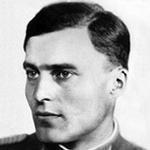 The plan was organized and executed in 1944 by high-ranking German military officials who disapproved of Hitler's leadership and hoped to bring about a quick end to World War II. The strategy called for detonating two bombs inside a steel bunker where Hitler would be conducting a meeting with about 20 German officers. The bomb would be planted by Colonel Claus Schenk von Stauffenberg, chief of staff of the reserve army. Once Hitler was dead, the reserves would rise up against the Nazis.
The plan was organized and executed in 1944 by high-ranking German military officials who disapproved of Hitler's leadership and hoped to bring about a quick end to World War II. The strategy called for detonating two bombs inside a steel bunker where Hitler would be conducting a meeting with about 20 German officers. The bomb would be planted by Colonel Claus Schenk von Stauffenberg, chief of staff of the reserve army. Once Hitler was dead, the reserves would rise up against the Nazis.
...

If you liked The Women in the Castle, try these:
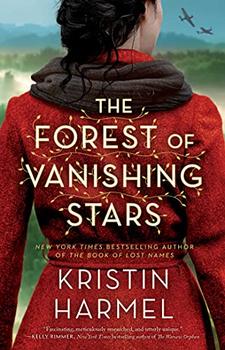
by Kristin Harmel
Published 2022
The New York Times bestselling author of the "heart-stopping tale of survival and heroism" (People) The Book of Lost Names returns with an evocative coming-of-age World War II story about a young woman who uses her knowledge of the wilderness to help Jewish refugees escape the Nazis—until a secret from her past threatens everything.
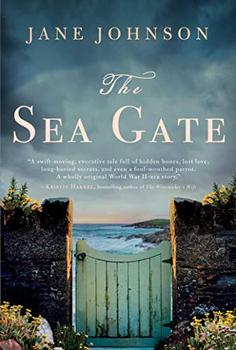
by Jane Johnson
Published 2021
A broken family, a house of secrets - an entrancing tale of love and courage set during the Second World War.
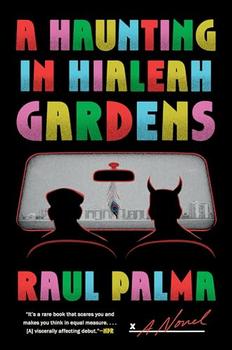


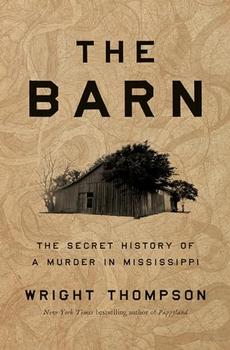
Who dares to teach must never cease to learn.
Click Here to find out who said this, as well as discovering other famous literary quotes!